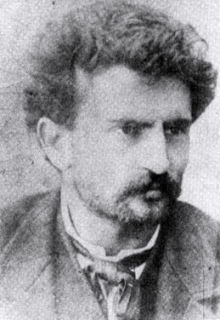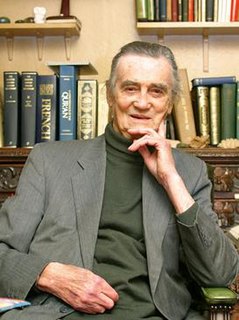A Quote by Dwight D. Eisenhower
Each and all of us must summon to mind the words of Him whom we honor this Easter time: 'When a strong man, armed, keepeth his palace, his goods are in peace'.
Related Quotes
When you want to direct someone toward the good, first put him at peace bodily and honor him with words of love. For nothing inclines such a man to shame and induces him to cast of his vice and be changed for the better as do bodily goods and honor, which he sees in you. Then, with love tell him a word or two, and do not be inflamed with anger toward him. Do not let him see any cause of enmity toward you. For love does not know how to lose its temper.
Only when peace lives within each of us, will it live outside of us. We must be the wombs for a new harmony. When it is small, peace is fragile. Like a baby, it needs nurturing attention. We must protect peace from violence and perversion if it is to grow. We must be strong to do this. But force, even in the name of honor, is always tragic. Instead, we must use the strength of wisdom and conscience. Only that power can nurture peace in this difficult time.
Besides loving each other, we must bear with each other and pardon ? 'forgive them that trespass against us' ? in order that our heavenly Father may 'forgive us our trespasses' (Mt. 6:14). Thus, with all your soul honor and love in every man the image of God, not regarding his sins, for God alone is Holy and without sin; and see how He loves us, how much He has created and still creates for us, punishing us mercifully and forgiving us bounteously and graciously. Honor the man also, in spite of his sins, for he can always amend.
The question may seem embarrassing, but it can be answered in a few words. For two people to live in peace they must both want peace; if one of them insists on using force to oblige the other to work for him and serve him, then the other, if he wishes to retain his dignity as a man and not be reduced to abject slavery, will be obliged in spite of his love of peace, to resist force with adequate means.
One of man's important mistakes, one which must be remembered, is his illusion in regard to his I. Man such as we know him, the 'man-machine,' the man who cannot 'do,' and with whom and through whom everything 'happens,' cannot have a permanent and single I. His I changes as quickly as his thoughts, feelings and moods, and he makes a profound mistake in considering himself always one and the same person; in reality he is always a different person, not the one he was a moment ago.
THE FATHER: But don't you see that the whole trouble lies here? In words, words. Each one of us has within him a whole world of things, each man of us his own special world. And how can we ever come to an understanding if I put in the words I utter the sense and value of things as I see them; while you who listen to me must inevitably translate them according to the conception of things each one of you has within himself. We think we understand each other, but we never really do.
Certain mystical philosophers have personified Destiny, and from this point of view each man's personal destiny is his archetype or "other self"--his "angel"--with whom he must be reunited if he is to rise above his fragmentary identity as a worldling and become whole, as he is (and always has been) in the mind of God.
Man's mind is his basic tool of survival. Life is given to him, survival is not. His body is given to him, its sustenance is not. His mind is given to him, its content is not. To remain alive, he must act, and before he can act he must know the nature and purpose of his action...To remain alive, he must think.
The receptive attitude enables one mind to fix itself to another as by spiritual grappling-irons. When you see that every word you utter us taken in, and weighed, and measured by your listener, you cannot free yourself from the influence of his presence. You are compelled to have in your thoughts not only the words you utter, but the man to whom they are spoken. You must not only talk, and talk well, but you must talk to him.
What a man does, that he has. What has he to do with hope or fear? In himself is his might. Let him regard no good as solid but that which is in his nature, and which must grow out of him as long as he exists. The goods of fortune may come and go like summer leaves; let him scatter them on every wind as the momentary signs of his infinite productiveness.
[T]he individual in whom the will for the light is strong and clear finds his heart inextricably bound up with the struggle of the forces of light in his native place and time. Much as he may long for the opportunity of fuller self- expression in a happier world, he knows that for him self-expression is impossible save in the world in which his mind is rooted. The individual in whom the will for the light is weak soon persuades himself that his opportunity lies elsewhere.
At times , he didn't understand the meaning of the Koran's words . But he said he liked the enhancing sounds the arabic words made as they rolled off his tongue . He said they comforted him , eased his heart . "They'll comfort you too . Mrariam jo , " he said . "You can summon then in your time of your need , and they won't fail you . God's words will never betray you , my girl . (pg.17)
Every man should write a brief history of his life: his parentage, his birth, his religion, when he was baptized and by whom, when ordained, what to, and by whom-give a brief sketch of all his missions and of all his official acts and the dealings of God with him. Then if he were to die and the historians wished to publish his history, they would have something to go by.
Man's mind is his basic tool of survival. Life is given to him, survival is not. His body is given to him, its sustenance is not. His mind is given to him, its content is not. To remain alive, he must act, and before he can act he must know the nature and purpose of his action. He cannot obtain his food without a knowledge of food and of the way to obtain it. He cannot dig a ditch-or build a cyclotron-without a knowledge of his aim and of the means to achieve it. To remain alive, he must think


































